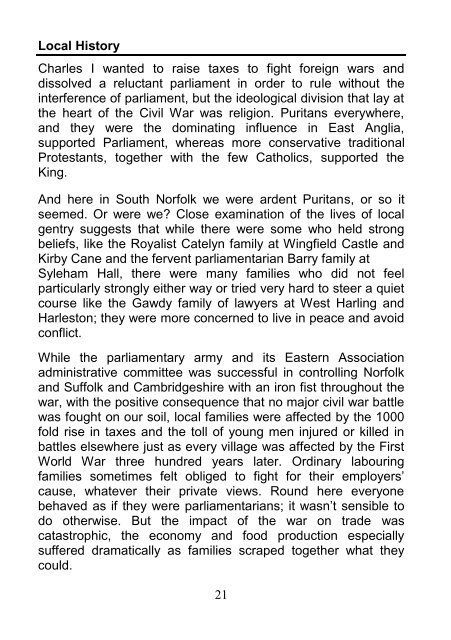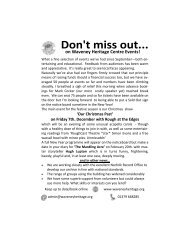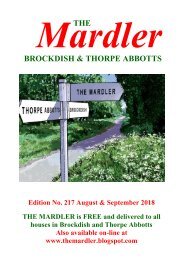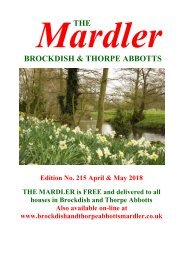Create successful ePaper yourself
Turn your PDF publications into a flip-book with our unique Google optimized e-Paper software.
Local History<br />
Charles I wanted to raise taxes to fight foreign wars and<br />
dissolved a reluctant parliament in order to rule without the<br />
interference of parliament, but the ideological division that lay at<br />
the heart of the Civil War was religion. Puritans everywhere,<br />
and they were the dominating influence in East Anglia,<br />
supported Parliament, whereas more conservative traditional<br />
Protestants, together with the few Catholics, supported the<br />
King.<br />
And here in South Norfolk we were ardent Puritans, or so it<br />
seemed. Or were we? Close examination of the lives of local<br />
gentry suggests that while there were some who held strong<br />
beliefs, like the Royalist Catelyn family at Wingfield Castle and<br />
Kirby Cane and the fervent parliamentarian Barry family at<br />
Syleham Hall, there were many families who did not feel<br />
particularly strongly either way or tried very hard to steer a quiet<br />
course like the Gawdy family of lawyers at West Harling and<br />
Harleston; they were more concerned to live in peace and avoid<br />
conflict.<br />
While the parliamentary army and its Eastern Association<br />
administrative committee was successful in controlling Norfolk<br />
and Suffolk and Cambridgeshire with an iron fist throughout the<br />
war, with the positive consequence that no major civil war battle<br />
was fought on our soil, local families were affected by the 1000<br />
fold rise in taxes and the toll of young men injured or killed in<br />
battles elsewhere just as every village was affected by the First<br />
World War three hundred years later. Ordinary labouring<br />
families sometimes felt obliged to fight for their employers’<br />
cause, whatever their private views. Round here everyone<br />
behaved as if they were parliamentarians; it wasn’t sensible to<br />
do otherwise. But the impact of the war on trade was<br />
catastrophic, the economy and food production especially<br />
suffered dramatically as families scraped together what they<br />
could.<br />
21














